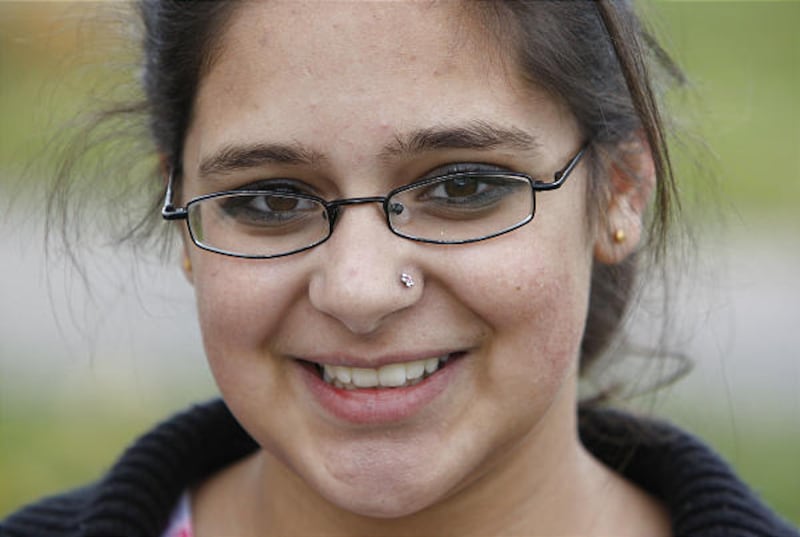BOUNTIFUL — Twelve-year-old Suzannah Pabla didn't pierce her nose to be stylish, cool or deviant.
"I just wanted to be like my grandma in India," said the seventh-grader, who was born to an American mother and an Indian Sikh father.
But Bountiful Junior High School doesn't care. Suzannah was kicked out of class last week for wearing the nose ring, which her parents call "a symbol of her cultural and religious identity."
She wasn't allowed to return until she replaced the ring Tuesday with a transparent stud.
Davis School District officials say the school, which only allows students to pierce their ears, is just applying policy. The Indo-American Leadership Confederation calls the incident discrimination.
The seventh-grader was reading when her teacher took her aside Oct. 20 and told her the nose ring was a violation of the school's dress code. She was escorted to the principal's office, where she spent the next five hours.
"They told me I couldn't be in class with the ring in," Suzannah said. "I tried to take it out, but it was stuck."
A community council, headed up by Bountiful Junior High School parents, established the ears-only piercing rule about five years ago. District policy only mandates that piercing not be "exaggerated."
Suzannah's mother, Shirley Pabla, was shocked when school administrators informed her that her daughter could not attend school until she removed the nose ring.
"I was sure they were going to come around," she said. "I couldn't believe they would deny a girl her culture like that."
Pabla agreed to replace her daughter's ring with a transparent stud only because she worried the girl's grades were suffering.
Davis School District maintains that cultural expression is not a protected right.
"Culture isn't a right guaranteed by law," said district spokesman Chris Williams.
He said the district hasn't infringed on any religious freedoms, either.
Before denying Shirley Pabla's petition for an exception to the dress-code policy, the district contacted the Interfaith Roundtable of Salt Lake.
"We're not experts on world religions around here," Williams said.
Indian Sikhs, he said, do not tattoo or pierce their bodies. Indian women do not pierce their noses until they are married.
"If it were a religious tenet, we would accommodate that because that's a civil right protected under the constitution," Williams said. "But it's clearly not a religious tenet. It's a cultural tenet."
Rajan Zed, chairman of the Indo-American Leadership Confederation, argues, however, that Indian culture and religion are intertwined and indistinguishable from one another.
"It may not be in the scriptures, but it's tradition," Zed said.
Men are not allowed to pierce their bodies, he said, but women, as exemplified by the heavily pierced Indian goddesses, are.
Furthermore, Zed said, while the nose ring is an important part of a woman's wedding dress, in many areas in India, girls also pierce their noses at puberty to signify their passage into womanhood.
"This is discrimination, and maybe it is ignorant, also," he said. "Sensitivity to religion should be a part of teacher training."
Suzannah pierced her nose the day before the traditional Indian celebration Diwali. Although her parents are divorced and she no longer lives with her father, the preteen said she has been "really into" Indian culture since she visited her family in India earlier this year.
"I just wanted to feel close to my family," she said of her decision to pierce her nose. "It's my heritage."
Suzannah's father, who lives in New York City, said he was proud of the girl's decision to wear a nose ring.
He was disappointed with the school.
"I am proud of my culture, and I am glad she is also," Inder Pabla said. "You know, that's not a bad thing."
e-mail: estuart@desnews.com


